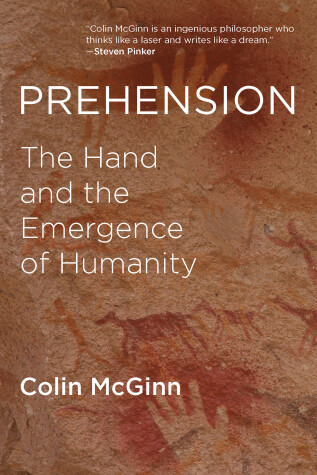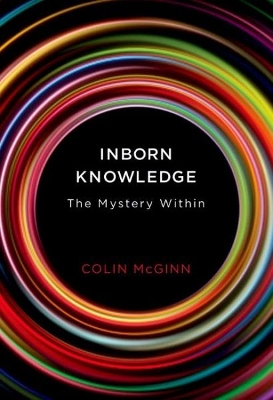The MIT Press
2 total works
“McGinn is an ingenious philosopher who thinks like a laser and writes like a dream.”
—Steven Pinker
This book is a hymn to the hand. In Prehension, Colin McGinn links questions from science to philosophical concerns to consider something that we take for granted: the importance of the hand in everything we do. Drawing on evolutionary biology, anatomy, archaeology, linguistics, psychology, and philosophy, among other disciplines, McGinn examines the role of the hand in shaping human evolution. He finds that the development of our capacity to grasp, to grip, to take hold (also known as prehension) is crucial in the emergence of Homo sapiens.
The human species possesses language, rational thought, culture, and a specific affective capacity; but there was a time when our ancestors had none of these. How did we become what we so distinctively are, given our early origins? McGinn, following Darwin and others, calls the hand the source of our biological success. When our remote ancestors descended from trees, they adopted a bipedal gait that left the hands free for other work; they began to make tools, which led to social cooperation and increased brain capacity. But McGinn goes further than others in arguing for the importance of the hand; he speculates that the hand played a major role in the development of language, and presents a theory of primitive reference as an outgrowth of prehension.
McGinn sings the praises of the hand, and evolution, in a philosophical key. He mixes biology, anthropology, analytical philosophy, existential philosophy, sheer speculation, and utter amazement to celebrate humans' achievement of humanity.
An argument that nativism is true and important but mysterious, examining the particular case of ideas of sensible qualities.
In this book, Colin McGinn presents a concise, clear, and compelling argument that the origins of knowledge are innate-that nativism, not empiricism, is correct in its theory of how concepts are acquired. McGinn considers the particular case of sensible qualities-ideas of color, shape, taste, and so on. He argues that these, which he once regarded as the strongest case for the empiricist position, are in fact not well explained by the empiricist account that they derive from interactions with external objects. Rather, he contends, ideas of sensible qualities offer the strongest case for the nativist position-that a large range of our knowledge is inborn, not acquired through the senses. Yet, McGinn cautions, how this can be is deeply problematic; we have no good theories about how innate knowledge is possible. Innate knowledge is a mystery, though a fact.
McGinn describes the traditional debate between empiricism and nativism; offers an array of arguments against empiricism; constructs an argument in favor of nativism; and considers the philosophical consequences of adopting the nativist position, discussing perception, the mind-body problem, the unconscious, metaphysics, and epistemology.

